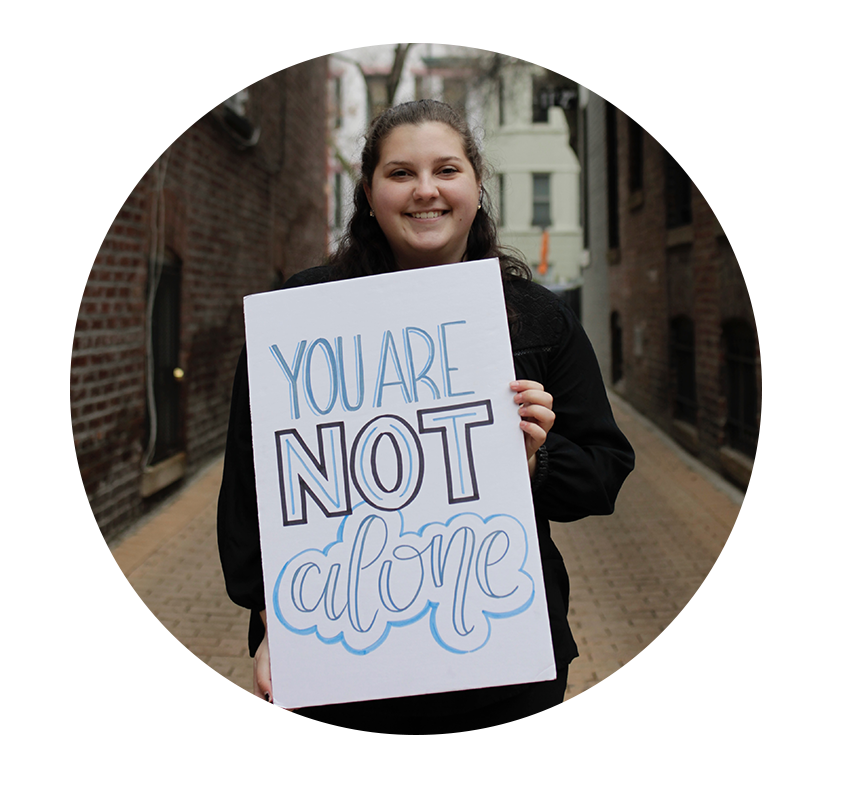
Sensitive Topic: This post focuses on basic intervention skills to use when helping someone considering suicide.
Dear Resident Assistant,
If you live a life similar to mine in college, then helping someone who is having suicidal thoughts may become part of your story, as it did mine. In my case, I was a first-year resident assistant (RA), psychology major, and the president of my chapter of Active Minds, and people flocked to me to discuss their mental health needs. If you find yourself involved in similar work, people will come to you in times of joy and help-seeking, but also in times of pain and desperation. Whether it be about their anxiety, homesickness, depression, or suicidality, you become a lifeline for people in some of the darkest times of their lives.
As someone who has helped over 10 peers who have felt suicidal seek help and treatment, I want to offer some advice and “training” of sorts in the hopes you feel a little less alone. This kind of intervention is not intended to be a substitute for the important mental health treatment that this individual will need – you are there to help them to recognize that hope and support are possible.You are an incredibly caring individual who wants to help someone get help and feel hope in their darkest hour. You are not in this alone, and you have people to turn to.
When someone shows up at your door at 1 a.m. because they are worried about a friend:
Remember, if someone is coming to you about someone else, thank them. Not everyone knows the seriousness of suicidality or the signs. By coming to you, they are potentially saving a life, and it is always better to be safe than sorry.
Here, take a deep breath. You are probably scared, and your adrenaline is kicking in. You need to stay calm in order to help someone. If you are like me, you can stay completely calm in the face of emergency situations, and then break down or freak out or scream (whatever works for you) after the situation is over.
1) Assess the situation:
When you enter the area where the student of concern is, the first thing you should do is assess whether or not you are in danger. Your life is the first priority. Although someone who is suicidal is usually not violent towards anyone but themselves, things happen, and you need to remain safe. Assess whether the person in question has an immediate means of hurting themselves. If you can, make a call to your supervisor or campus police to alert them of your situation. If the person is not in immediate danger, you should ask them if you can enter their space and sit down. If others are present, ask them to leave the room and wait outside.
2) Ask the question:
Doesn’t matter how graceful you say this next part, it’s crucial you ask directly: “are you thinking of killing yourself?” Many people believe that mentioning the idea of suicide puts the idea in the person’s head, but this is a huge MYTH that is widely believed in our society. It is important to be direct when asking so you know if this person is in danger of hurting themselves.
3) Mobilize support:
Next, call your superior or campus police if you haven’t already done so. While waiting for these individuals to arrive, you can talk with the person about what they are feeling and offer them your full attention. It is important to let them know that your superior is coming (I usually refer to them as my friend ____), and that once they get there, you are going to get them help. Let the person know that there is hope, these feelings are temporary, that they are loved, and that the world needs them here.
4) Self-care:
Now, once the individual has accepted and received help, it’s time to take care of you. Being with someone who is suicidal can be scary, draining, or even triggering. You need to take time to debrief with someone (while still respecting confidentiality), sleep – take care of yourself. Don’t make the mistake I did and let yourself be constantly triggered and burnt out, while still not asking for help. You matter just as much as the person you just helped. Take a day to yourself. Let your professors know that you had an emergency situation and need to stay home and take a mental health day. Do whatever it takes to make sure you are okay.
Sincerely,
A former RA who has been where you are
For more information on warning signs, how to start the conversation, and where to turn for help, visit http://www.suicideispreventable.org/.
If you or someone you know is in crisis, please call the National Suicide Prevention Lifeline at 1-800-273-TALK (8255) or text “BRAVE” to 741-741 to reach the Crisis Text Line.



